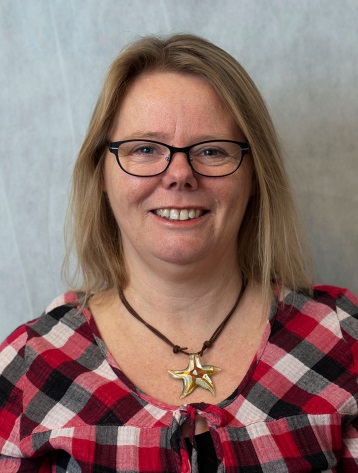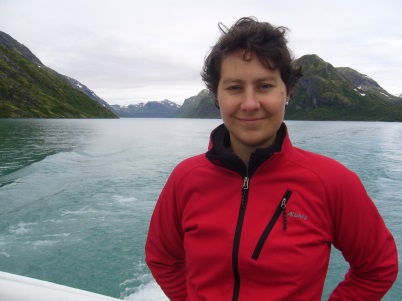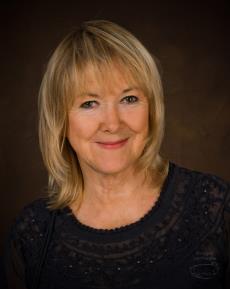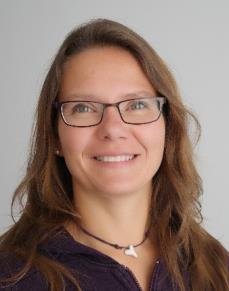Mind the gap! Moving from awareness to action
Title: Women and Sustainability: Necessary dialogs from Latin America
Language: English and Spanish
Time: Wednesday, July 1, 13h30 – 15h30
Place: Room Small C-350
Symposium with environmentalist women who are researchers, representatives of governments, NGOs and universities, engaged in environmental education. It will be a dialogue on women and sustainability in Latin America with a global approach. The goal of the symposium is to discuss the developing sense of belonging and unity among Latin American women, the solidary empowerment from the networks to share experiences and projects that can strengthen women's groups actions in the territories, sharing knowledge and practices in the environmental area, referenced upon premises for sustainability that consider the following aspects: social, economical, environmental, cultural, race and ethnicity, gender, aesthetic, ethical, political, spiritual and territorial.
According to the theme of the congress “ People and Planet, how can they develop together” the RED de Mujeres e Mulheres Ambientalistas da América Latina will facilitate a dialogue - listening , silence, reflection and speech – on the critical views of the nature of sustainable development shared by environmentalists of different countries in the region, with its territorial experiences in order to contribute to the strengthening and consolidation of a Latin American Environmental Thought (PAL - Pensamento Ambiental Latino Americano Environmental Latin American thought ).We aim to promote a gender based reflexion on South-South and South-North possibilities of future collaborative processes to overcome the unequal, excluding, unsustainable patterns of development we all share, improving spaces do common action towards such goals.
Considering the Declaration of Beijing + 20 and Platform for Action, women play a fundamental role in achieving sustainability. Therefore, these five Latin American women, experienced networkers, educators and lectures, invite for this open discussion based on dialogue between knowledge, science and technological production, cultural diversity of the region and the emancipatory social movements, formulating on gender and environment, to dialogue from the academic, social and political character of our action, centered on the concepts of preserving, caring , conquering and consolidating rights towards well being (bien vivir).
The gathering will be chaired by Dulce Maria Pereira (Brazil), who will make an introductory presentation. The themes will be shortly presented by the Andrea Libera (Argentina), Daniela Garcia (Argentina) Eliane Potiguara (Brazil) and Maria Laura Barcia (Uruguai) and Patricia Revollo (Bolivia). Jéssica Santos and Maria Laura Barcia will conduct the dynamics of the dialogue.
Andrea Líbera
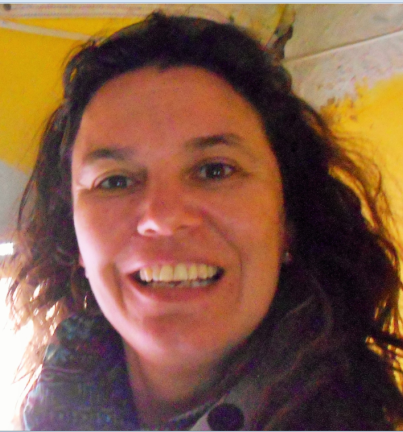 Chemical Engineer, Environmental Engineering Specialist. Working since 1996 in Energy Rationalization, implementing processes within cleaner production strategies, teaching the fundamentals Chair of Environmental Engineering and Waste Management at the National University of La Plata, Head of the Industrial Harmony Consultant, Deputy Director of the Middle Nehuén environment, Energy and Environment Foundation, Member of the organizing committee Iberoea VI in 2009 in Argentina, Getting Mention "SUSTAINABLE DEVELOPMENT" by RURAL BIODIGESTOR presented in "Young Rural Entrepreneurs Project" of the Ministry of Agriculture, Livestock and Fisheries nation Capital Region, November 2011. Editorial Board of the publication: "Enriching and environmental education proposals for action" VI ICBS, 2009.
Chemical Engineer, Environmental Engineering Specialist. Working since 1996 in Energy Rationalization, implementing processes within cleaner production strategies, teaching the fundamentals Chair of Environmental Engineering and Waste Management at the National University of La Plata, Head of the Industrial Harmony Consultant, Deputy Director of the Middle Nehuén environment, Energy and Environment Foundation, Member of the organizing committee Iberoea VI in 2009 in Argentina, Getting Mention "SUSTAINABLE DEVELOPMENT" by RURAL BIODIGESTOR presented in "Young Rural Entrepreneurs Project" of the Ministry of Agriculture, Livestock and Fisheries nation Capital Region, November 2011. Editorial Board of the publication: "Enriching and environmental education proposals for action" VI ICBS, 2009.
Daniela Garcia
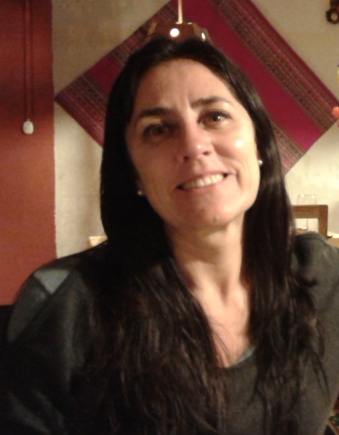 Anthropologist, Specialist in Education for Sustainability. Between 2003 and 2007 she served as Technical Program Coordinator Environmental Training of the Ministry of Environment of the City of BsAs. During 2008 and 2009 she coordinated the Environmental Education Unit in the Ministry of Environment and Sustainable Development of the Nation, where she currently continues as an advisor. She was the Academic Coordinator of the VI Ibero-American Congress on Environmental Education and member of the Academic Committee of the VII CIDEA. She is Professor and researcher at the National Jauretche University where she co-directs a research group and territorial action addresses the study of problems of socio-environmental health and child labor in the context of an intersectoral program launched by UNICEF.
Anthropologist, Specialist in Education for Sustainability. Between 2003 and 2007 she served as Technical Program Coordinator Environmental Training of the Ministry of Environment of the City of BsAs. During 2008 and 2009 she coordinated the Environmental Education Unit in the Ministry of Environment and Sustainable Development of the Nation, where she currently continues as an advisor. She was the Academic Coordinator of the VI Ibero-American Congress on Environmental Education and member of the Academic Committee of the VII CIDEA. She is Professor and researcher at the National Jauretche University where she co-directs a research group and territorial action addresses the study of problems of socio-environmental health and child labor in the context of an intersectoral program launched by UNICEF.
Dulce Maria Pereira
 Graduated in Architecture and Urban Planning; Postgraduate in Multiculturalism, Sustainability, Geopolitics, Management, Post-Conflict and Disaster Territories, Water Resources Management. Master / Doctorate in Engineering and Material Science. Coordinates the Program Agenda 21 and Future Studies Center of the Department of Production Engineering, Economics and Administration of the Federal University of Ouro Preto - UFOP. Coordinator of the Formative Process in Environmental Education: Sustainable Schools. Among other public functions was Secretary of Education in Mariana-MG County; President of the Palmares Cultural Foundation / Ministry of Culture; Alternate Senator for São Paulo State, Ambassador and General Secretary of the Community of Countries of Portuguese Language-CPLP, Lisbon. Active in several networks she is an antiracism militant, environmentalist and feminist. She is a professor at Federal University of Ouro Preto –UFOP.
Graduated in Architecture and Urban Planning; Postgraduate in Multiculturalism, Sustainability, Geopolitics, Management, Post-Conflict and Disaster Territories, Water Resources Management. Master / Doctorate in Engineering and Material Science. Coordinates the Program Agenda 21 and Future Studies Center of the Department of Production Engineering, Economics and Administration of the Federal University of Ouro Preto - UFOP. Coordinator of the Formative Process in Environmental Education: Sustainable Schools. Among other public functions was Secretary of Education in Mariana-MG County; President of the Palmares Cultural Foundation / Ministry of Culture; Alternate Senator for São Paulo State, Ambassador and General Secretary of the Community of Countries of Portuguese Language-CPLP, Lisbon. Active in several networks she is an antiracism militant, environmentalist and feminist. She is a professor at Federal University of Ouro Preto –UFOP.
Eliane Lima dos Santos
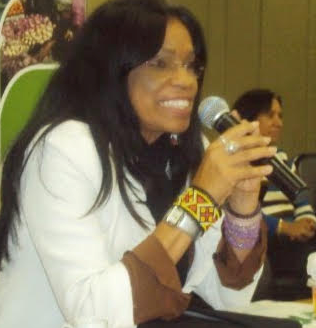 Eliane Potiguara is a native Brazilian – indigenous feminist and environmentalist, leadership- writer and teacher , graduated in Letters (Portuguese-Literature) in Education, attends a specialization course in Environmental Education. She has published several books, such as "Half Man, Half Mask. She also writes for children and is a professor speaker and lecturer. She was indicated for the Nobel Peace Prize (2005) and was awarded knight of the Order of Cultural Merit / MinC. She traveled 48 countries working on the theme of Indigenous Peoples Rights.
Eliane Potiguara is a native Brazilian – indigenous feminist and environmentalist, leadership- writer and teacher , graduated in Letters (Portuguese-Literature) in Education, attends a specialization course in Environmental Education. She has published several books, such as "Half Man, Half Mask. She also writes for children and is a professor speaker and lecturer. She was indicated for the Nobel Peace Prize (2005) and was awarded knight of the Order of Cultural Merit / MinC. She traveled 48 countries working on the theme of Indigenous Peoples Rights.
Jéssica Maria dos Santos
 Pedagogue and environmental educator. Degree in Pedagogy - Full Degree - Qualification in teaching the early grades, kindergarten and Educational Management at Rio Preto University Center - Unirp, where she also completed the course of graduate "broad sense" in Teaching of Higher Education. She is currently coordinator professor at the Municipal System Barretos teaching / SP, tutor and enraizadora the Formative Process of Environmental Education and COM-VIDA offered by the - Federal University of Ouro Preto / UAB. She has experience in teaching and school management and develops volunteer work in environmental education in the city of Barretos / SP.
Pedagogue and environmental educator. Degree in Pedagogy - Full Degree - Qualification in teaching the early grades, kindergarten and Educational Management at Rio Preto University Center - Unirp, where she also completed the course of graduate "broad sense" in Teaching of Higher Education. She is currently coordinator professor at the Municipal System Barretos teaching / SP, tutor and enraizadora the Formative Process of Environmental Education and COM-VIDA offered by the - Federal University of Ouro Preto / UAB. She has experience in teaching and school management and develops volunteer work in environmental education in the city of Barretos / SP.
María Laura Barcia
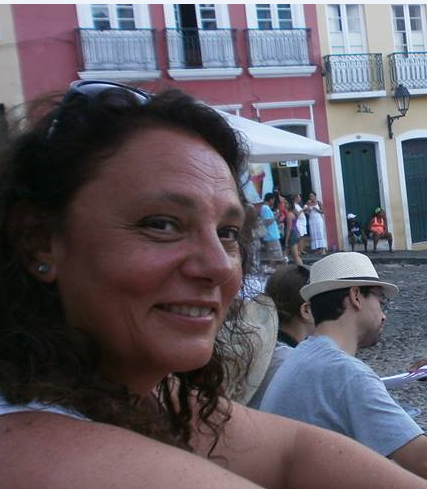 Environmental educator, Professor of Biology in Secondary Education, Coordinator of the Environmental Education-MEC Uruguay and the National Environmental Education Network (Renea) - Development of national education policies of EA planning, coordination and development of online courses and classroom EA-Articulation and development of inter-institutional projects (government and mixed) of EA Coordinator for drafting the National Plan EA Uruguay (2011-2014) -member of the International Academic Committee of the VII Iberoamerican Congress on Environmental Education, Lima 2014 and editor of V Iberoamerican Congress on Development and Environment, Santa Fe, Argentina, (2011) - Also has participated as a lecturer, speaker, facilitator and workshop leader for conferences, meetings and national and international seminars Environmental Education.
Environmental educator, Professor of Biology in Secondary Education, Coordinator of the Environmental Education-MEC Uruguay and the National Environmental Education Network (Renea) - Development of national education policies of EA planning, coordination and development of online courses and classroom EA-Articulation and development of inter-institutional projects (government and mixed) of EA Coordinator for drafting the National Plan EA Uruguay (2011-2014) -member of the International Academic Committee of the VII Iberoamerican Congress on Environmental Education, Lima 2014 and editor of V Iberoamerican Congress on Development and Environment, Santa Fe, Argentina, (2011) - Also has participated as a lecturer, speaker, facilitator and workshop leader for conferences, meetings and national and international seminars Environmental Education.
Patricia Roncal Revollo
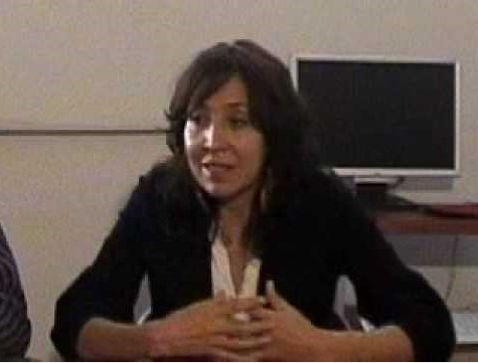 Bachelor in Economics Universidad Mayor de San Andrés, Master of Science in Ecology and Conservation Universidad Mayor de San Andrés, Doctorante Universidad Mayor de San Andrés - Autonomous University of Mexico in the Dasarrollo Science: Research Theme Critical Thinking Translation of Indigenous Peoples of Bolivia: Well being – Vivir Bien. Director of the Center for Ecology and Conservation Graduate, Teacher Researcher on Political Ecology, Ecological Economics, Environmental Education, Environmental Thought Latiniamericano, Well being – Bien Vivir.
Bachelor in Economics Universidad Mayor de San Andrés, Master of Science in Ecology and Conservation Universidad Mayor de San Andrés, Doctorante Universidad Mayor de San Andrés - Autonomous University of Mexico in the Dasarrollo Science: Research Theme Critical Thinking Translation of Indigenous Peoples of Bolivia: Well being – Vivir Bien. Director of the Center for Ecology and Conservation Graduate, Teacher Researcher on Political Ecology, Ecological Economics, Environmental Education, Environmental Thought Latiniamericano, Well being – Bien Vivir.
Title: Showcasing emergent research from the Swedish Graduate School in Education for Sustainable Development (GRESD)
Time: Thursday, 2 July 08:30 - 10:00
Place: Humanisten, Room C342
The main purpose of the symposium is to showcase some recent research findings produced by PhD students accepted by or affiliated with the Swedish Graduate School in Education for Sustainable development (GRESD). GRESD started as a state sponsored one-time research capacity development project that accepted 9 post-graduate student and included additional 9 post-graduate students all focusing on ESD in their PhD projects. With the project coming to an end and having produced a number of dissertations targeting an international research audience, it is the intention to showcase some of the central contributions made and to receive feedback on from practitioners and researchers on how existent research projects can tie into and contribute to existent demands in environmental education (EE) practice and practice.
The presentations of research results are aimed to cover a wide range of issues, including topics such as evaluation of classroom practices, students qualifications, globalization and teachers’ ethical reflections the role of place-specific artifacts in learning. As GRESD is a collaboration between eight universities with their specific traditions and approaches to educational research, approaches show a creative variety of theoretical backgrounds. This variation is also reflected in the presentations that are putting into play Lacanian psychoanalysis, discourse theory, pragmatist theory and phenomenography in order to shed new light on critical areas of environmental education.
The symposium will consist of an introduction (10 minutes) brief presentations (10-15 minutes each) of central research findings in the context of their overarching research projects, followed by a synthesis and suggestions by a selected commentator (20 minutes) and general discussions with the audience (20 minutes). The dialogue following the presentations is intended to outline possible future research projects as well as emerging areas topics in the portrayed GRESD research that could feed into existing demands in EE practice and research.
Helen Hasslöf
Malmö University: Students’ Qualification in Education for Sustainable Development – Epistemic gaps or composites of critical thinking?
Ulrica Stagell
Jönköping University: Action competence and skills, competencies, competence, and educational ideals
Kristina Andersson
Uppsala University: TBA
In order to read more about the abstracts and the presenters, please click here.


